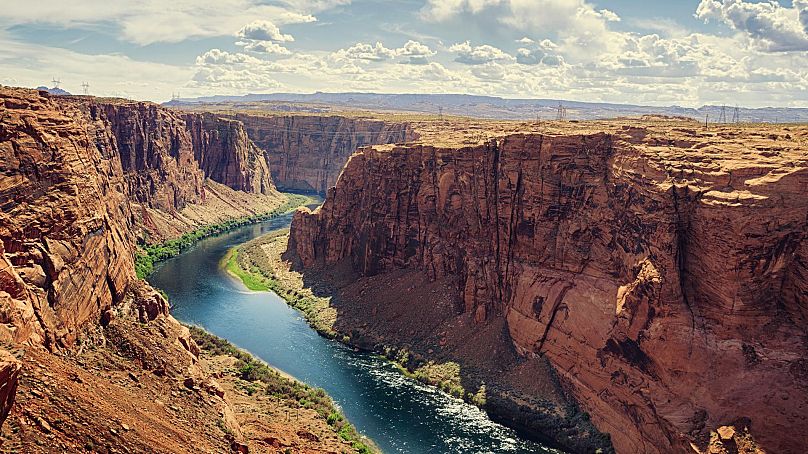How have Las Vegas’ water cops helped the desert city cope with drought?
Leaky hose pipe? Watch out for the water cops.
 ADVERTISEMENT
ADVERTISEMENT
 ADVERTISEMENT
ADVERTISEMENT
Home to thousands of clubs, luxury hotels, and giant casinos, Las Vegas is known as an oasis of overindulgence.
But the desert city has emerged as a surprising model of austerity and prudence when it comes to water.
After years of drought, Nevada state authorities have taken drastic anti-water waste action - including banning lawns and capping the size of swimming pools.
"Las Vegas has done a very good job selling the facade of excess and decadence," says Bronson Mack, Southern Nevada Water Authority spokesman.
"But the reality is that our community is extremely water-efficient."
How does Las Vegas keep water use in check?
Some 2.3 million people live in the arid Las Vegas Valley, and 40 million tourists are drawn to the massive resort city each year.
But under resource-sharing agreements with other states, Nevada is allowed to use less than two per cent of the drought-hit Colorado River's total water.
On the Las Vegas Strip, famous casino attractions like the Bellagio's fountains and the Venetian's canals use groundwater from private wells that isn’t safe for consumption.
Out in the sprawling suburbs, early morning "water patrol" cars with flashing lights crawl the streets, hunting for broken sprinklers and leaky hoses.
Investigators film any violation, before planting a warning flag on the lawn for first-time offenders or logging a fine for repeat transgressors.
By 2027, any watering of "non-functional" grass—there purely for aesthetic rather than recreational reasons—will be banned, except at single-family residences.
Las Vegas offers homeowners $3 (€2.73) for every square foot of grass they remove and replace with water-efficient alternatives, like drip-irrigated plants.
The package of strict laws, financial incentives, and community education seems to be working.
Even as the region's population has exploded by more than 50 per cent in the past two decades, use of the mighty but dwindling river—by far Las Vegas's main water source—has declined by almost a third.
As federal officials consider mandatory cuts across the parched US West, Las Vegas "has become a water conservation rock star" and "a model for cities" across the region, says researcher Brian Richter
Water laws aren’t always popular - but other states might follow suit
Not everyone’s happy with the rules. But as climate change increases instances of drought, other cities are following suit.
The rules limiting Nevada's access to the Colorado River, which supplies water to 40 million people including California's cities and giant farms, were drawn up in 1922.
Back then, Las Vegas "barely even existed," says Mack, and was "just a whistlestop for the train between Los Angeles and Salt Lake City."
Now, with water levels plummeting at nearby Lake Mead—the nation's largest reservoir—federal officials are planning steep cuts across the West.
These will either be a uniform percentage reduction for all states, or by "senior rights"—basically, who got there first. This would put Nevada near the back of the line.
Mack says Las Vegas's record of water reductions could be a challenge in the future if mandated cuts are based on current usage levels.
Las Vegas "should get credit for the amount of water that we have already saved in this community over the past 20 years," he says.
"Other communities are just now starting to step up to the conservation plate."
Watch the video above to learn about the Las Vegas water cops.











